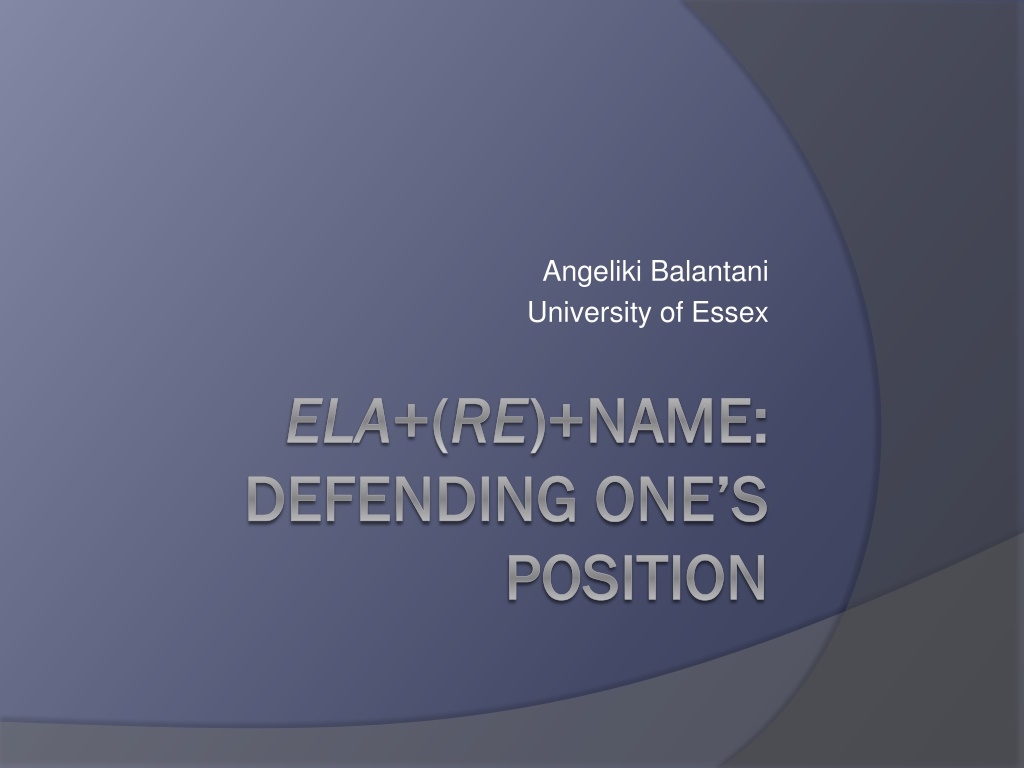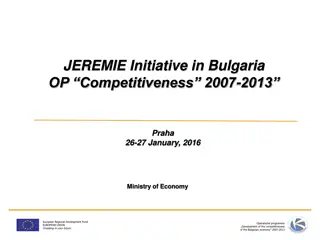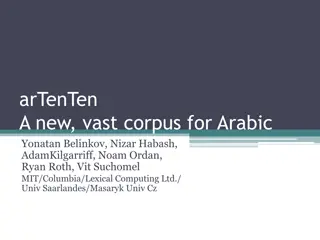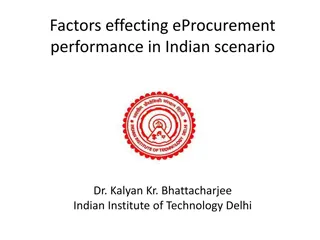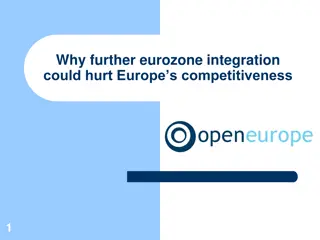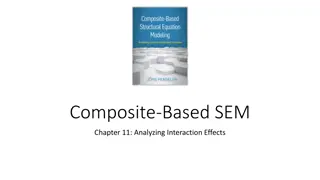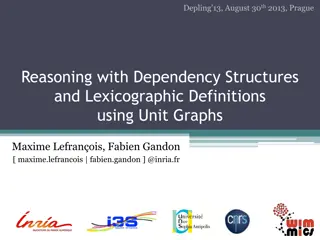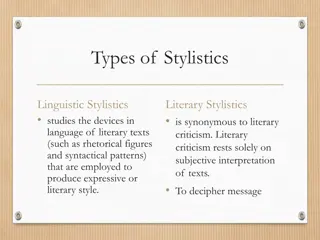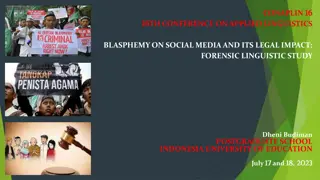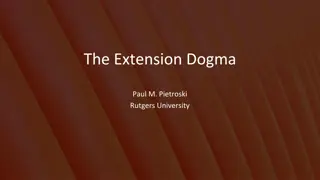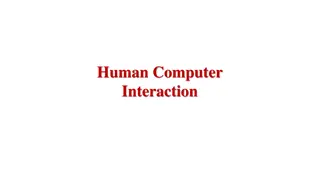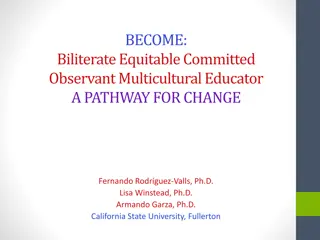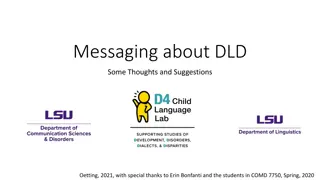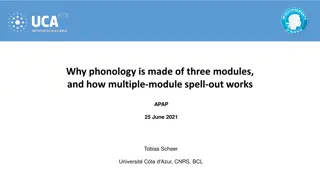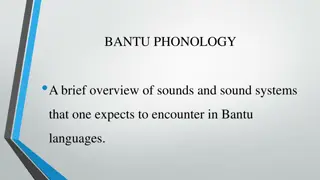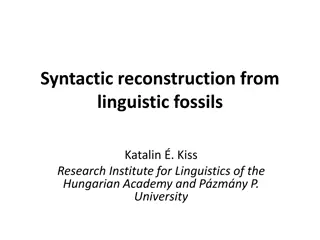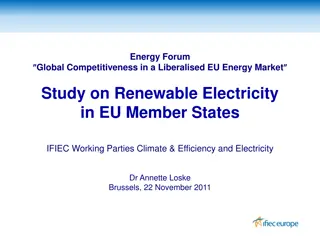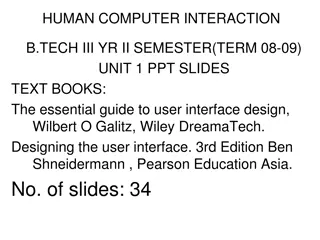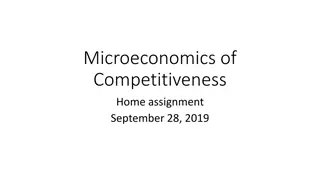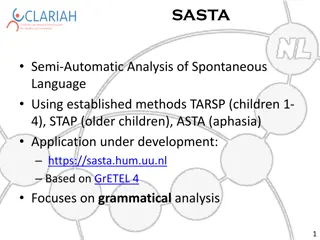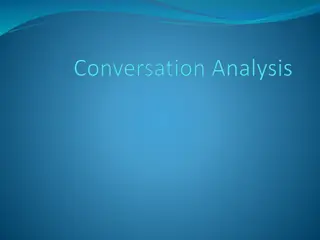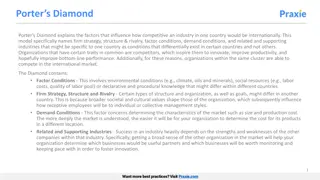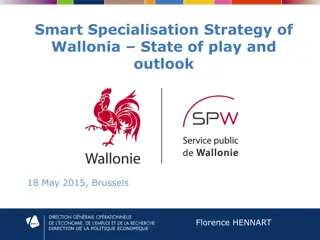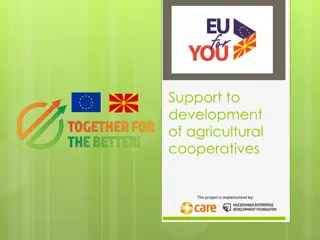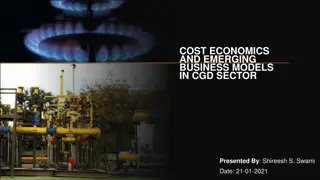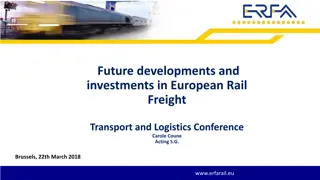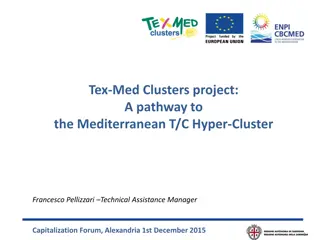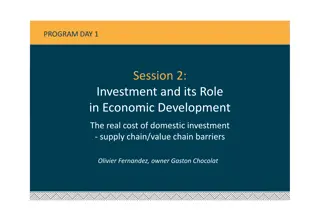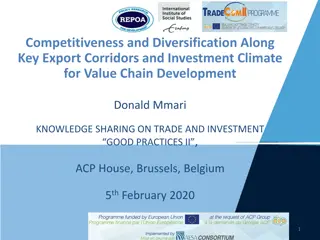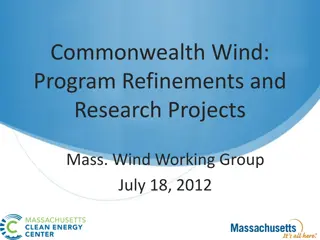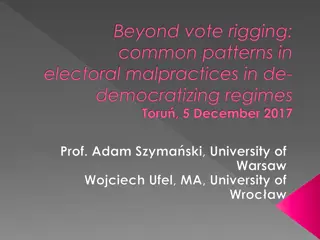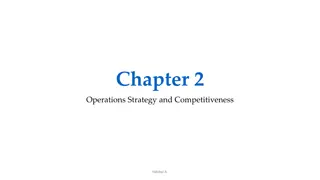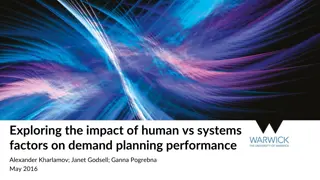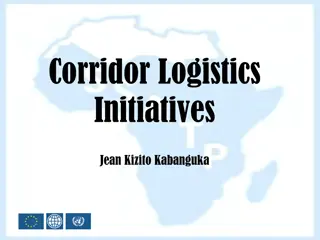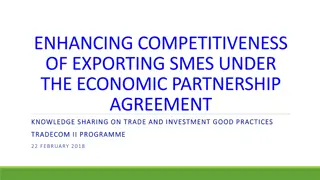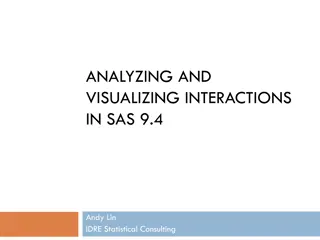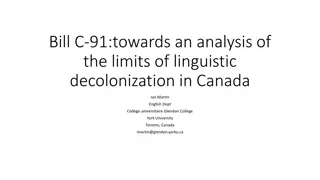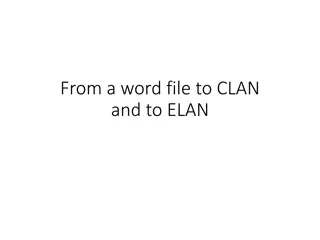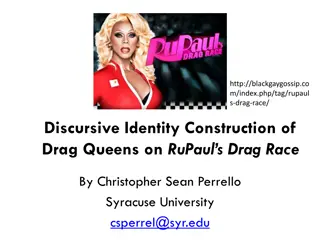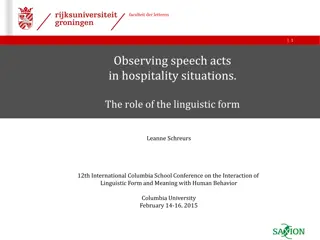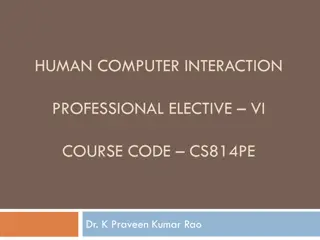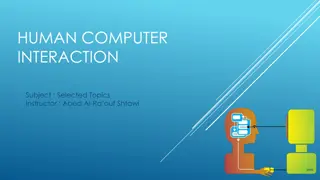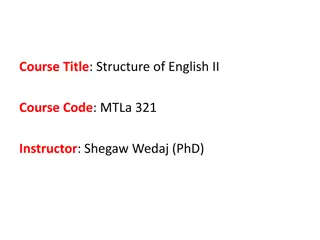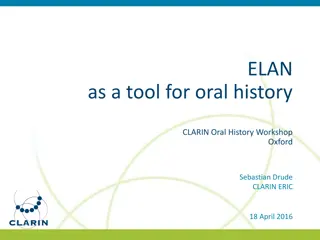Competitiveness and Epistemics in Interaction: A Linguistic Analysis
This linguistic analysis delves into the phenomena of imperative forms, assertion, disagreement, and the distribution of responsibilities in interactions. It explores the context of competitiveness and epistemics, emphasizing the participants' rights in describing and knowing information. The study includes audio and video recordings from diverse age groups and socio-economic backgrounds, providing insights into conversational dynamics and address terms.
Download Presentation

Please find below an Image/Link to download the presentation.
The content on the website is provided AS IS for your information and personal use only. It may not be sold, licensed, or shared on other websites without obtaining consent from the author. Download presentation by click this link. If you encounter any issues during the download, it is possible that the publisher has removed the file from their server.
E N D
Presentation Transcript
Angeliki Balantani University of Essex ELA ELA+( +(RE DEFENDING ONE S DEFENDING ONE S POSITION POSITION RE)+NAME: )+NAME:
Definition and the phenomenon (=to come) imperative form Practice A: Assertion Examples When [I took it out then: when: you said it is purple (.) then we should have taken it out. B: Disagreement /resistance [When I:: cut] the last one it could not be che wed re guys A: Ela+(re)+name [E la re Kelvin. B: Back down =I- it also depends how it was as you said
The context Competitiveness in interaction Epistemics the distribution responsibilities regarding what participants can accountably know, how they know it, whether they have rights to describe it and in what terms (Heritage & Raymond, 2005: 16). of rights and
The context (cont.) Clayman (2013) on prefatory address terms Example from Clayman (2013: 296): (Schegloff, 1980: 112--113) 1 Fred: Oh by the way((sniff))I have a bi:g favor to ask ya. 2 Laurie: Sure, go head. 3 Fred: Member the blouse you made a couple weeks ago? 4 Laurie: Ya. 5 Fred: Well I want to wear it this weekend to Vegas but my 6 mom s buttonholer is broken. 7 Laurie: -> Fred I told ya when I made the blouse I d do the 8 buttonholes. 9 Fred: Ya ((sniff)) but I hate ta impose. 10 Laurie: No problem. We can do them on Monday after work.
Data Data collection audio- and video- recordings of 17 and a half hours Participants friends and family members from diverse age groups and socioeconomic backgrounds
M2U00061 (L: Leandro, K: Kelvin, V: Vanessa) 24 L: Otan to [ vgala ego tote: pu: ipes ine mov (.) tote prepe 25 na to vgalume. When [I took it out then: when: you said it is purple (.) then we should have taken it out. 26 L: [((upward movement of the face)) 27 (0.6) 28 V: Ne tote tha ihe zumia bra[vo afto: li:: afto lipi] Yes then it would have had juices exac[tly this: is mi:: this is missing] 29 K: [Otan ekopsa ego::] to telefteo de 30 masi tan re pedia [When I:: cut] the last one it could not be che wed re guys 31 (0.1) 32 L: [E la re Kelvin. [Co me on re Kelvin. 33 L: [((mouth full of food))= 34 K: =I- ine analoga ke pos itan opos ipes =I- it also depends how it was as you said 35 [(0.5) 36 L: [((nods)) 37 K: to psisimo the roasting 38 (0.5) 39 K: Telospanton= Anyway= 40 L: =Kalo itan. =It was good.
M2U0061 (L: Leandro, K: Kelvin, V:Vanessa) 9 L: [> a [dume tha n eh anameni ti soba?==[de tha n eh .< [>Let s [see will he have it turned on the stove?==[he won t have it.< 10 (0.8) 11 K: Tha fi is tri:s tha se pent[emis You will leave at three: you will be at five th[irty 12 L: [((raises his eyebrows and 13 slightly moves his head back to indicate no)) 14 (0.1) 15 L: Ime [si[guros I am [su[re 16 V: [Les [You think 17 L: E [hi-hilia] ta ekato E [a hu-hundred] per cent 18 (0.6) 19 K: O: pate ras su les You:r fa ther you mean 20 (0.2) 21 L: [hhh 22 L: Pateras den bori more i mana m = My father can t more my mother= 23 V: [Aftos tha tin anapsi omos tha dis aftos tha- ki ama [tha: 24 rotisis aftos tha t n eh ana[ps [He will turn it on however you will see he will- and if [you will: ask he will have tu[rned it on 25 K: [Bori na min eh ke krio more: [Maybe it won t be so cold more: 26 (0.3) 27 V: Ela re: Kelvin den eh kr[io Come on re: Kelvin it won t be co[ld 28 L: [Eh . [It is. 29 K: [Ala tha m pis an den eh to: 30 kalo[rifer [But then if he hasn t got the: [radiator 31 V: [Ets opos ehun math afti::: 32 [As they::: are used to 33 (0.2) 34 V: den tus ftan to kalorifer
Discussion over the political developments 5 E: ke [fisika pali distihos tha po dikeonomaste= and [of course again unfortunately I will say we are vindicated= 6 D: =[Oli dikeoneste [pali ta idia] =[Everyone is vindicated [again the same] 7 B: [( )] 8 E: [di- o h oh >mono emis dikeo[nomaste giati oli 9 ligo poli alazun tis thesis tus==emis imaste [statheri apo tin 10 proti stigmi giati ehume [pi< [ven- no no >only we are vendi[cated because everyone more or less change their positions==we are [constant from the first moment because we have [said< 11 D: [Ma ki o Siriza dikeonete [ etsi lei [But Siriza is also vindicated [ so they say 12 E: [E:hume pi oti ehume mia 13 [<politiki stathe]ri> [We ha:ve said that we have a [<consta]nt policy> 14 D: [Ki i kivernisi dikeonete tha sas pi ] [The government is also vindicated they will tell you ] 15 (0.2) 16 B: [Elate kiria Kountoura] [Come Mrs. Kountoura] 17 E: [I: a-] [The: a-] 18 (0.2) 19 E: >Kitakste ama ine na milane i ali apo ena tetarto ki emena na mu 20 [lete elate me to pu [aniksa to stoma mu: < >Look if the others talk for a quarter and to me [you say come the moment [I opened my mouth: < 21 B: [Ela te ohi na mili sete leo [na mi sas 22 diakoptume ( ) [Co me no I mean ta lk [so that we don t interrupt you ( ) 23 D: [Elate 24 proho[riste leme de leme sama[ti ste= [Come go ah[ead we say we don t say st[o p= 25 E: [ E ne ((nods)) [ E yes ((nods)) 26 E: [Afto leo e:m [That s what I mean e:m 27 B: =Prohoriste ne =Go ahead yes 28 E: Pro[spatho I am t[rying
Summary After sequences of epistemic incongruence Followed by a back down Closing implicative
References Clayman, S. (2013). Agency in Response. Journal of Pragmatics, 57, 290-302. Drew, P. (2003). Precision and Exaggeration in Interaction. American Sociological Review, 68 (6), 917-938. Heritage, J. & Raymond, G. (2005). The Terms of Agreement: Indexing Epistemic Authority and Subordination in Talk-in-Interaction. Social Psychology Quarterly, 68 (1), 15-38. Nikiforidou, K. (submitted) Constructions and Cross-text Generalizations: Empathetic Narration as Genre. Grammatical
